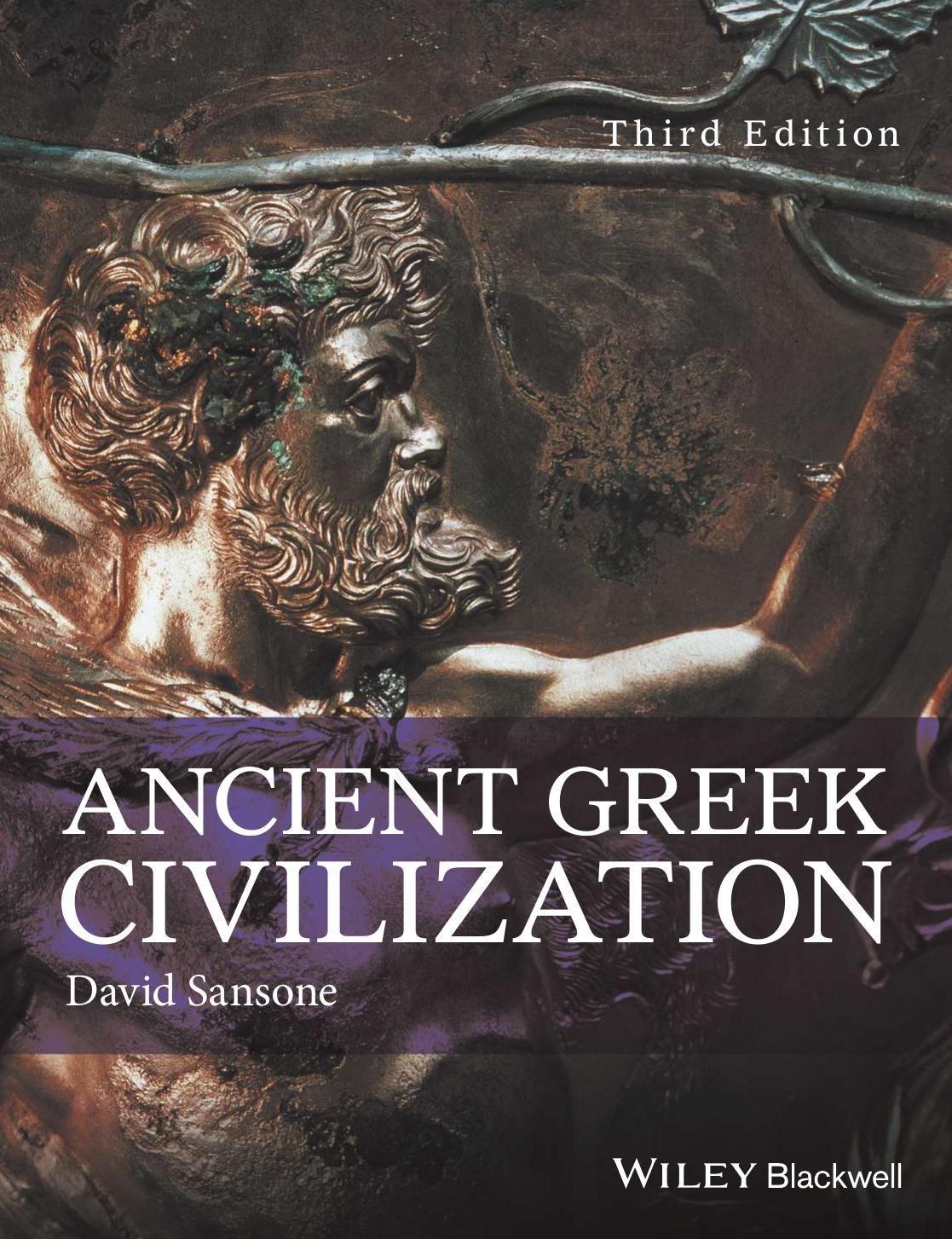Ancient Greek Civilization by David Sansone

Author:David Sansone
Language: eng
Format: epub, pdf
ISBN: 9781119098126
Publisher: Wiley
Published: 2016-09-01T00:00:00+00:00
The Development of Democracy in Athens: Cleisthenes
We saw earlier that the new plan for the city of Miletus, following its destruction in 494 BC, created a geometrically regular structure on an irregular terrain. The reforms of Cleisthenes imposed a similar pattern, not on the land of Attica but on its citizen population. Following Cleisthenes’ reforms, the fundamental division of the population was according to DEMES, a word whose basic meaning appears to have been something like “divisions.” In the rural parts of Attica, the deme was a village or a town, while in the urban area of Athens the deme corresponded to what we would call a “neighborhood.” There were 140 of these demes, which Cleisthenes distributed into 30 newly created entities, called TRITTYES, each consisting of a number of demes, from one or two large ones to about 10 smaller ones. Ten of these trittyes were located in and near the city of Athens, 10 along the coast, and 10 in the inland area away from the city. While the demes in each trittys were in many instances geographically contiguous, that was not always the case, and in some instances 40 or more kilometers might separate two demes belonging to the same trittys (map 11). The purpose of these trittyes seems to have been to arrange Athens in such a way as to create divisions that could represent a cross-section of the population. For one trittys from each of the three areas, city, coast, and inland, was combined into one of 10 newly created tribes (figure 40). Previously, the population of Attica had been divided among four ancestral tribes, the names of which are also found as the names of tribes in several Ionic poleis. The 10 new tribes were named after legendary Athenian heroes and membership in them was hereditary, giving the impression that all members of the tribe were descended from a common heroic ancestor. In fact, this new and arbitrary arrangement represented a significant break with the past and had the (undoubtedly intended) effect of reducing the influence of traditional family connections. What is perhaps most surprising is the ease with which the Athenians appear to have been willing to adopt this new organization. Cleisthenes must have counted on the readiness of the Athenians to reinvent their past, a readiness that, as we have seen, is characteristic of the Greeks generally.
Download
This site does not store any files on its server. We only index and link to content provided by other sites. Please contact the content providers to delete copyright contents if any and email us, we'll remove relevant links or contents immediately.
| Africa | Americas |
| Arctic & Antarctica | Asia |
| Australia & Oceania | Europe |
| Middle East | Russia |
| United States | World |
| Ancient Civilizations | Military |
| Historical Study & Educational Resources |
The Daily Stoic by Holiday Ryan & Hanselman Stephen(3297)
The Fate of Rome: Climate, Disease, and the End of an Empire (The Princeton History of the Ancient World) by Kyle Harper(3055)
People of the Earth: An Introduction to World Prehistory by Dr. Brian Fagan & Nadia Durrani(2726)
Ancient Worlds by Michael Scott(2675)
Babylon's Ark by Lawrence Anthony(2666)
The Daily Stoic by Ryan Holiday & Stephen Hanselman(2564)
Foreign Devils on the Silk Road: The Search for the Lost Treasures of Central Asia by Peter Hopkirk(2454)
India's Ancient Past by R.S. Sharma(2448)
MOSES THE EGYPTIAN by Jan Assmann(2411)
The Complete Dead Sea Scrolls in English (7th Edition) (Penguin Classics) by Geza Vermes(2269)
Lost Technologies of Ancient Egypt by Christopher Dunn(2219)
The Earth Chronicles Handbook by Zecharia Sitchin(2216)
24 Hours in Ancient Rome by Philip Matyszak(2073)
Alexander the Great by Philip Freeman(2061)
Aztec by Gary Jennings(2019)
The Nine Waves of Creation by Carl Johan Calleman(1906)
Curse Tablets and Binding Spells from the Ancient World by Gager John G.;(1858)
Before Atlantis by Frank Joseph(1847)
Earthmare: The Lost Book of Wars by Cergat(1817)
